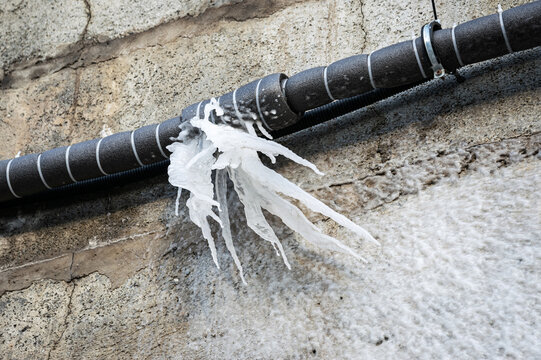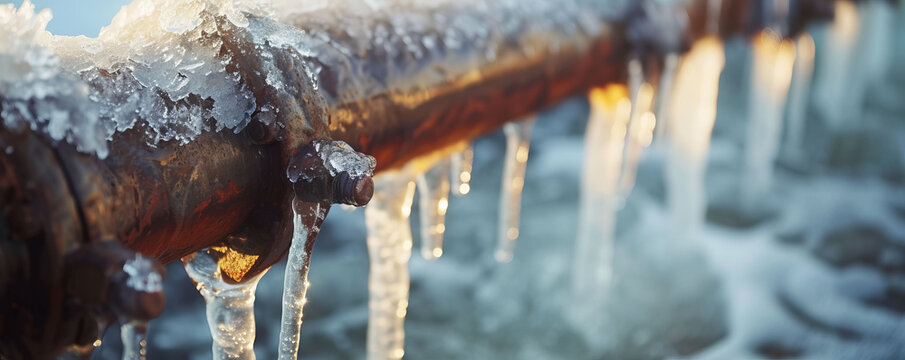How to Protect Your Plumbing from Cold Weather: Essential Tips
How to Protect Your Plumbing from Cold Weather: Essential Tips
Blog Article
Everybody seems to have their unique thoughts with regards to Preventing and dealing with frozen pipes.

Cold weather can wreak havoc on your plumbing, particularly by freezing pipelines. Right here's exactly how to prevent it from happening and what to do if it does.
Intro
As temperature levels decrease, the risk of frozen pipelines boosts, potentially leading to pricey repair services and water damage. Recognizing exactly how to prevent icy pipes is crucial for home owners in chilly environments.
Comprehending Icy Pipes
What creates pipes to ice up?
Pipes ice up when exposed to temperature levels listed below 32 ° F (0 ° C) for prolonged durations. As water inside the pipes freezes, it increases, putting pressure on the pipeline wall surfaces and potentially triggering them to break.
Risks and damages
Icy pipelines can lead to water system disturbances, residential or commercial property damages, and costly repair services. Burst pipelines can flood homes and cause substantial structural damages.
Signs of Frozen Piping
Identifying frozen pipelines early can stop them from rupturing.
Exactly how to identify icy pipes
Look for lowered water flow from faucets, uncommon smells or noises from pipes, and noticeable frost on exposed pipes.
Avoidance Tips
Shielding susceptible pipelines
Cover pipelines in insulation sleeves or use heat tape to safeguard them from freezing temperature levels. Concentrate on pipelines in unheated or external locations of the home.
Home heating techniques
Keep interior spaces sufficiently heated up, particularly areas with plumbing. Open cabinet doors to allow warm air to flow around pipelines under sinks.
Shielding Exterior Pipes
Yard pipes and outdoor faucets
Separate and drain yard tubes prior to winter season. Set up frost-proof spigots or cover outside taps with insulated caps.
What to Do If Your Pipes Freeze
Immediate actions to take
If you suspect icy pipes, keep faucets open up to relieve pressure as the ice melts. Use a hairdryer or towels soaked in hot water to thaw pipes slowly.
Long-Term Solutions
Architectural changes
Take into consideration rerouting pipelines away from outside wall surfaces or unheated locations. Include added insulation to attic rooms, cellars, and crawl spaces.
Updating insulation
Purchase top notch insulation for pipelines, attics, and walls. Proper insulation helps keep regular temperature levels and minimizes the danger of frozen pipelines.
Final thought
Stopping frozen pipelines calls for aggressive measures and fast feedbacks. By recognizing the causes, indicators, and safety nets, homeowners can secure their pipes throughout winter.
Helpful Tips to Prevent Frozen Pipes this Winter
UNDERSTANDING THE BASICS: WHY PIPES FREEZE AND WHY IT’S A PROBLEM
Water freezing inside pipes is common during the winter months, but understanding why pipes freeze, and the potential problems it can cause is crucial in preventing such incidents. This section will delve into the basics of why pipes freeze and the associated problems that may arise.
THE SCIENCE BEHIND FROZEN PIPES
When water reaches freezing temperatures, it undergoes a physical transformation and solidifies into ice. This expansion of water as it freezes is the primary reason pipes can burst. As the water inside the pipe freezes, it expands, creating immense pressure on the walls. If the pressure becomes too great, the pipe can crack or rupture, leading to leaks and water damage.
FACTORS THAT CONTRIBUTE TO PIPE FREEZING
Low Temperatures: Extremely cold weather, especially below freezing, increases the risk of pipes freezing. Uninsulated or Poorly Insulated Pipes: Pipes located in unheated areas, such as basements, crawl spaces, or attics, are more prone to freezing. Insufficient insulation or lack of insulation altogether exacerbates the problem. Exterior Wall Exposure: Pipes running along exterior walls are susceptible to freezing as they encounter colder temperatures outside. Lack of Heating or Temperature Regulation: Inadequate heating or inconsistent temperature control in your home can contribute to frozen pipes. PROBLEMS CAUSED BY FROZEN PIPES
- Pipe Bursting: As mentioned earlier, the expansion of water as it freezes can cause pipes to burst, resulting in significant water damage.
- Water Damage: When pipes burst, it can lead to flooding and water damage to your property, including walls, ceilings, flooring, and personal belongings.
- Structural Damage: Prolonged exposure to water from burst pipes can compromise the structural integrity of your home, leading to costly repairs.
- Mold and Mildew Growth: Excess moisture from water damage can create a favorable environment for mold and mildew growth, posing health risks to occupants.
- Disrupted Water Supply: Frozen pipes can also result in a complete or partial loss of water supply until the issue is resolved.
WHY CERTAIN PIPES ARE MORE PRONE TO FREEZING
- Location: Pipes located in unheated or poorly insulated areas, such as basements, crawl spaces, attics, or exterior walls, are at higher risk of freezing.
- Exterior Pipes: Outdoor pipes, such as those used for irrigation or exposed plumbing, are particularly vulnerable to freezing as they are directly exposed to the elements.
- Supply Lines: Pipes that carry water from the main water supply into your home, including the main water line, are critical to protect as freezing in these lines can affect your entire plumbing system.
- Underground Pipes: Pipes buried underground, such as those connected to sprinkler systems or outdoor faucets, can be susceptible to freezing if not properly insulated.
https://busybusy.com/blog/helpful-tips-to-prevent-frozen-pipes-this-winter/

I'm certainly very interested by How to Prevent Your Pipes From Freezing and I am praying you enjoyed the post. Enjoyed our review? Please share it. Help other people find it. I appreciate your readership.
Get A Free Quote Report this page